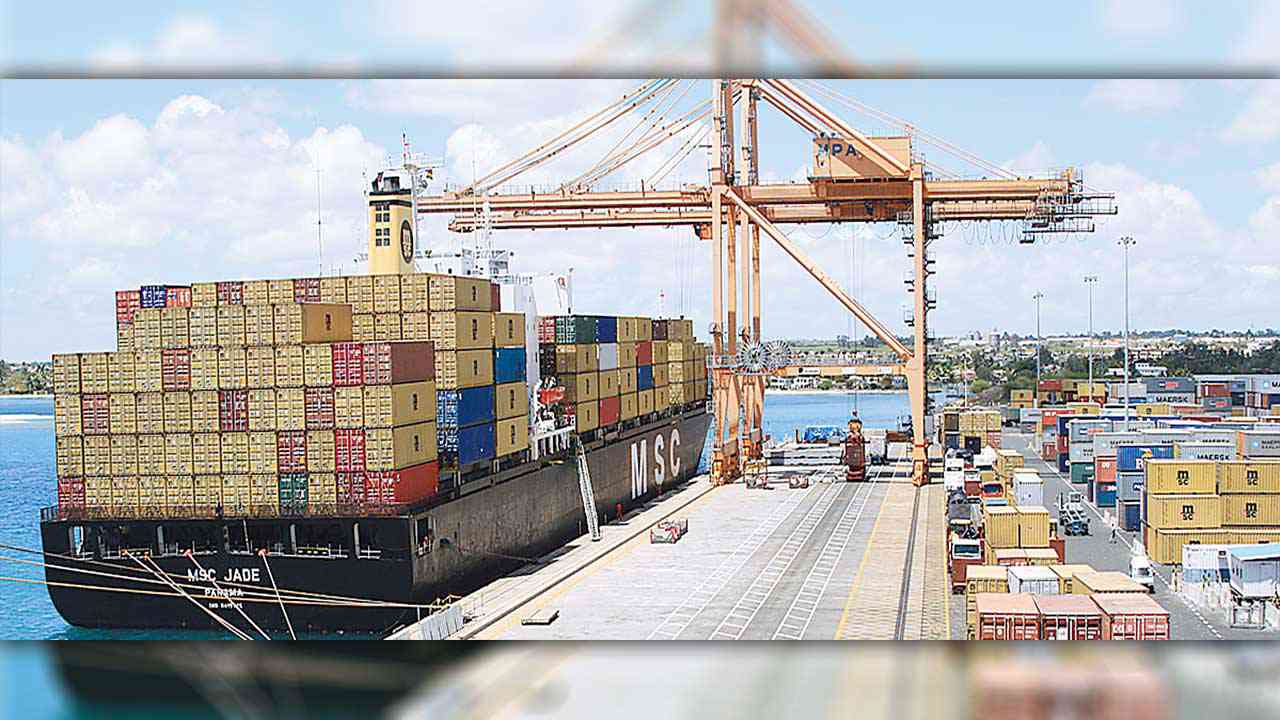
 Another two weeks before the year 2016 comes to an end, and it’s time to assess our economic performance during the past twelve months. This year has been rich in economic happenings, both local and global. The country has changed its finance minister twice this year and procrastinated a lot on the fate of landmark project Heritage City.
Another two weeks before the year 2016 comes to an end, and it’s time to assess our economic performance during the past twelve months. This year has been rich in economic happenings, both local and global. The country has changed its finance minister twice this year and procrastinated a lot on the fate of landmark project Heritage City.
The year 2015 was marked by spectacular events, starting with a new government at the helm and then the crash of the BAI. 2016 has also had its share of events, starting with a double change of guard at the ministry of finance. Then came the Budget with its ten key strategies unfolding a new era of development, geared towards the objective of bringing a new economic miracle.
Major projects have been announced but most are yet to be kicked off. The minister of public infrastructure, Nandcoomar Bodha, recently stated that the year 2017 will be a year of projects. This year, as have been the tendency over the past few years, the real estate sector has again dominated the economy, attracting the bulk of Foreign Direct Investment (FDI) into the island. Official figures indicate that, out of the Rs 10.6 billion FDI received during the first nine months this year, a proportion of nearly Rs 7.6 billion was invested in the real estate sector. The advent of Smart City Scheme and Property Development Scheme, which replaces the IRS/RES, has further exacerbated this trend. And now the government has decided to authorize foreign citizens to acquire apartments in any building with a minimum of three levels.
Economic growth rate is estimated to be 3.9% this year. Total investment is likely to rebound by 5.9% in 2016 after several years of contraction. Private sector investment is expected to grow by 6.1% in 2016 while public sector investment may expand by 5.3% in 2016. Private investment rate is expected to increase to 12.8% in 2016 from 12.6% in 2015 while public investment rate is likely to increase to 4.8% in 2016 from 4.7% in 2015.


Private sector debt
Official figures from the Bank of Mauritius indicate that, as at 31 October 2016, the total amount of credit granted by financial institutions to the private sector stood at Rs 336 billion. Many sectors of the economy are heavily indebted, namely the construction sector (Rs 86 billion), tourism (Rs 48 billion) and financial services (Rs 28 billion).

Unemployment
According to official figures, the unemployment rate will fall to 7.9% this year, compared to 7.5% in 2015. As at 30 June 2016, the number of unemployed persons in Mauritius was estimated at 41,300.
Inflation
The inflation rate for the year 2016 is estimated at 1.2%. The rate is lower than the rate of 2015, estimated at 1.3%.
Public debt
The level of public debt as at 30 September 2016 was estimated at Rs 237.9 billion, which is equivalent to 55.6% of GDP.
Tourism boom
During the first eleven months of this year, the number of tourists having visited Mauritius is 1,127,093. This represents a growth of 10.7% compared to last year. During the month of November only, the country was visited by 115,782 tourists. It is expected that the total number of tourists for the year 2016 might reach 1,270,000. Total earnings from tourism are estimated to be Rs 59 billion.
 Highlights
Highlights
- The year 2016 saw Mauritius fall from grace in the ‘Doing Business Ranking’ by the World Bank, after a decade of shiny rise. Indeed, Mauritius lost 17 places, from the 32nd to the 49th position. But the country fared well in the Economic Freedom of the World Index, by the Fraser Institute, ranking at the 5th position globally.
- Mauritius signed an agreement with India for a grant of nearly Rs 12.7 billion. The money will be used to finance the Metro Express project, the construction of a new Supreme Court building, the construction of about 1,000 social housing units, a new ENT hospital and the distribution of tablets to primary school children. China on its side has signed an agreement to write off a debt of Rs 450 million.
- On 23 June 2016, 51.9% of British voters chose to leave the European Union. The Brexit is considered both as a threat to and an opportunity for our economy.
- In May 2016, China allocated a grant of RMB 145 million which is approximately Rs 780 million to the Government of Mauritius for the financial year 2016-2017. In January 2016, China has granted an interest-free loan of RMB 50 million, approximately Rs 250 million.
- The annual fee payable to the Registrar of Companies by a small private company with turnover not exceeding Rs 10 million was reduced from Rs 2,500 to Rs 500 as from 1st January 2016. This measure is part of government’s policy to support and encourage Small and Medium Enterprises (SMEs) in their development efforts, as enunciated in budget 2015-2016. In the same vein, all businesses paying Trade Fees of Rs 5,000 and under will be exempted from payment as from 1st January 2016.
FDI 2005-2016
Mauritius is heavily dependent on Foreign Direct Investment. However, the bulk of foreign investment is made in the real estate sector. Finance Minister Pravind Jugnauth stated that the government will see how to attract FDI to other sectors as well.
![]()
 J'aime
J'aime














